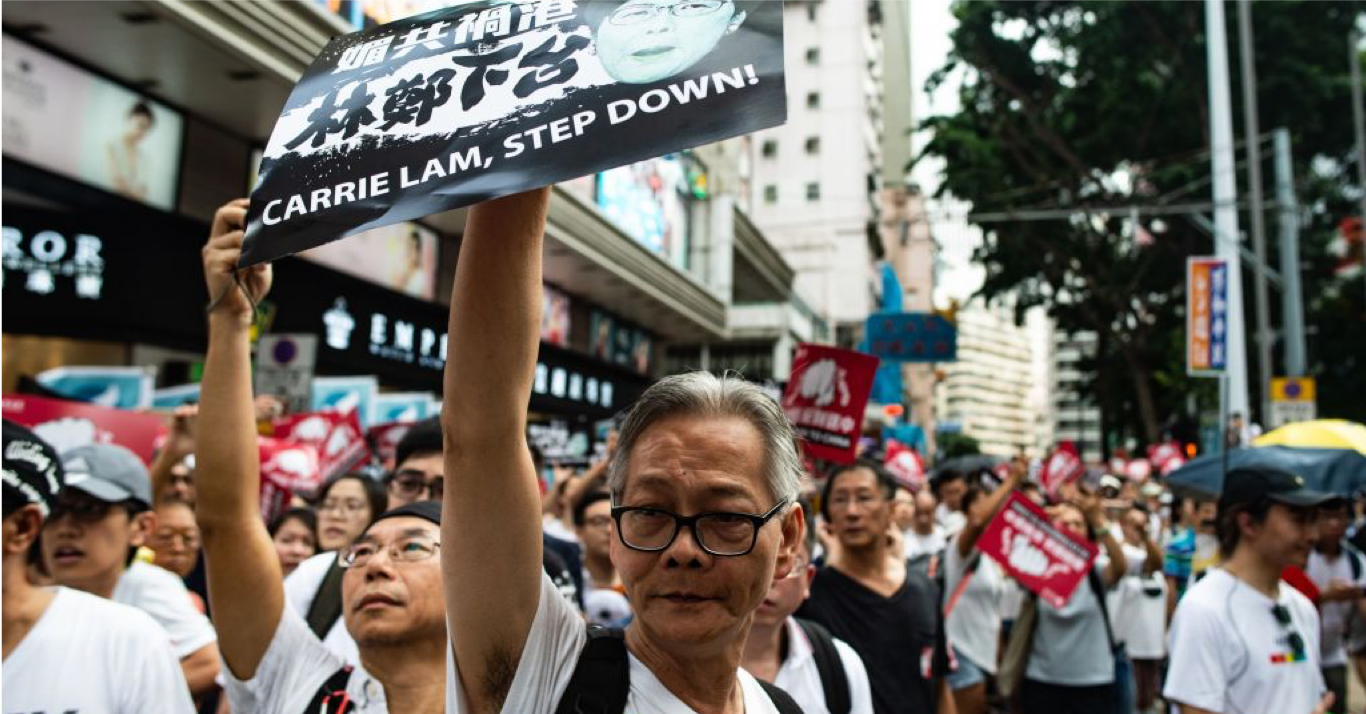Large crowds in Hong Kong gathered on Sunday, June 9, to protest a proposed extradition law that could allow China to target political dissidents.
The turnout was estimated in the 'tens of thousands'.
From Causeway Bay to Admiralty
Singaporean journalism professor Cherian George, who teaches at Hong Kong Baptist University, shared pictures of the large crowds on Twitter.
Signs that the #Extradition protest is going to be extraordinary: This is Tsim Sha Tsui station, far away from the Victoria Park meeting point. The crowd here is at Chinese New Year levels. @SCMPNews pic.twitter.com/VykEszfqEt
— Cherian George (@cheriangeorge) June 9, 2019
Admiralty Station: crowds patiently waiting for Island Line trains to Causeway Bay. #Extradition pic.twitter.com/wxs4qi9JbM
— Cherian George (@cheriangeorge) June 9, 2019
Others shared photos and videos of the protest online with the hashtag #extradition.
https://twitter.com/johnwoodRTR/status/1137642416834396161
class='fb-post' data-href='https://www.facebook.com/lynnl/posts/10156165866847554'>
Concerns over possible exploitation of extradition law
According to CNN, the bill allows Hong Kong’s authorities to extradite fugitives to territories it doesn't currently have formal extradition treaties with, including Macau, Taiwan and mainland China.
Critics say, though, that this would allow mainland China to demand the extradition of prisoners in Hong Kong for political reasons.
An earlier protest against the Bill took place on April 28, with a turnout figure of 130,000 given by the SCMP, although police estimates put it at 22,800.
According to SCMP, the guarantee of a fair trial and other safeguards will not be included in the Bill.
Extradition law supposedly will not apply to political cases
The Hong Kong authorities have refuted this claim.
On April 28, SCMP quoted Chief Secretary Matthew Cheung Kin-chung, the second most senior official in Hong Kong, who said that the authorities would carefully consider each case and refuse extradition if it does not meet legal requirements.
He also said cases involving human rights, politics or capital punishment would be rejected.
The Hong Kong government has also proposed that only fugitives with a sentence of at least seven years will eligible for extradition.
Taiwan murder case prompted action
A gory murder case factored into the bill's proposal.
In Feb. 2018, a Hong Kong woman was allegedly murdered by her boyfriend during a trip to Taiwan. She was five months pregnant.
Under Hong Kong law, the man must face charges related to her death in the place where it happened, Taiwan.
But Hong Kong doesn’t have an extradition deal with Taiwan.
On April 28, the Hong Kong authorities put out a statement referring to the murder case, which said:
"The Taiwan murder case has clearly shown that serious crimes can happen in any place and at any time. It is just a question who the unfortunate victim may be.
Hence, we have to plug the loopholes in the current mechanisms as quickly as possible."
However, according to the BBC, the Taiwanese government has said it will not seek to extradite the murder suspect under the proposed changes to the law.
It urged Hong Kong to handle the case separately.
Top image by Phillip Fong via Getty Images.
